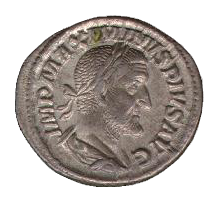Numismatics
Numismatics is the study or collection of currency, including coins, tokens, paper money, and related objects. The field of numismatics encompasses a broad range of activities and interests, from the academic study of currency's historical, cultural, and economic significance to the hobby of collecting coins and banknotes for their aesthetic or historical value.
History of Numismatics[edit | edit source]
The history of numismatics can be traced back to ancient times, with evidence suggesting that people began collecting coins as a hobby as early as the Roman Empire. However, numismatics as a systematic field of study did not emerge until the Renaissance, when scholars began to study ancient coins not only for their intrinsic value but also for the historical insight they provided. The 18th and 19th centuries saw a significant expansion in the field, with the establishment of numismatic societies and the publication of specialized journals and catalogs.
Areas of Study[edit | edit source]
Numismatics is divided into several specialized areas, including:
- Ancient Numismatics: The study of coins from the ancient world, including Greek, Roman, and Byzantine coins.
- Medieval Numismatics: Focuses on coins and currency from the medieval period, roughly spanning the 5th to the 15th centuries.
- Modern Numismatics: The study of coins and currency from the modern era, including both circulating currency and commemorative issues.
- Paper Money: Encompasses the study of banknotes, bills, and other forms of paper currency.
- Exonumia: The study of coin-like objects such as medals, tokens, and badges, which do not have a stated currency value but are collected for their historical, artistic, or cultural significance.
- Notaphily: A branch of numismatics that specifically focuses on the collection and study of paper money.
- Scripophily: The study and collection of stock and bond certificates.
Methods[edit | edit source]
Numismatists employ various methods in their study, including the examination of the physical characteristics of coins and paper money, such as weight, composition, and design, as well as the context of their production and use. Research in archives, historical texts, and other sources is also crucial for understanding the broader economic, political, and cultural implications of currency.
Collecting[edit | edit source]
Coin collecting is a popular aspect of numismatics, with enthusiasts ranging from casual collectors to serious investors. Collectors may focus on a specific type of coin, such as those from a particular country or era, or they may collect coins based on a theme, such as animals, historical figures, or significant events. The condition of a coin, known as its grade, is a critical factor in its value, with well-preserved specimens being more highly prized.
Numismatic Organizations[edit | edit source]
There are numerous numismatic organizations and societies around the world that support the study and collection of coins and currency. These organizations often host conferences, publish research, and provide resources for both amateur and professional numismatists.
Conclusion[edit | edit source]
Numismatics is a field that combines the joy of collecting with the intellectual challenge of research, offering insights into the economic, political, and cultural history of societies. Whether as a hobby or a scholarly pursuit, numismatics provides a unique window into the past and a deeper understanding of the role of currency in human civilization.
| This article is a stub. You can help WikiMD by registering to expand it. |
Search WikiMD
Ad.Tired of being Overweight? Try W8MD's physician weight loss program.
Semaglutide (Ozempic / Wegovy and Tirzepatide (Mounjaro / Zepbound) available.
Advertise on WikiMD
|
WikiMD's Wellness Encyclopedia |
| Let Food Be Thy Medicine Medicine Thy Food - Hippocrates |
Translate this page: - East Asian
中文,
日本,
한국어,
South Asian
हिन्दी,
தமிழ்,
తెలుగు,
Urdu,
ಕನ್ನಡ,
Southeast Asian
Indonesian,
Vietnamese,
Thai,
မြန်မာဘာသာ,
বাংলা
European
español,
Deutsch,
français,
Greek,
português do Brasil,
polski,
română,
русский,
Nederlands,
norsk,
svenska,
suomi,
Italian
Middle Eastern & African
عربى,
Turkish,
Persian,
Hebrew,
Afrikaans,
isiZulu,
Kiswahili,
Other
Bulgarian,
Hungarian,
Czech,
Swedish,
മലയാളം,
मराठी,
ਪੰਜਾਬੀ,
ગુજરાતી,
Portuguese,
Ukrainian
Medical Disclaimer: WikiMD is not a substitute for professional medical advice. The information on WikiMD is provided as an information resource only, may be incorrect, outdated or misleading, and is not to be used or relied on for any diagnostic or treatment purposes. Please consult your health care provider before making any healthcare decisions or for guidance about a specific medical condition. WikiMD expressly disclaims responsibility, and shall have no liability, for any damages, loss, injury, or liability whatsoever suffered as a result of your reliance on the information contained in this site. By visiting this site you agree to the foregoing terms and conditions, which may from time to time be changed or supplemented by WikiMD. If you do not agree to the foregoing terms and conditions, you should not enter or use this site. See full disclaimer.
Credits:Most images are courtesy of Wikimedia commons, and templates, categories Wikipedia, licensed under CC BY SA or similar.
Contributors: Prab R. Tumpati, MD




